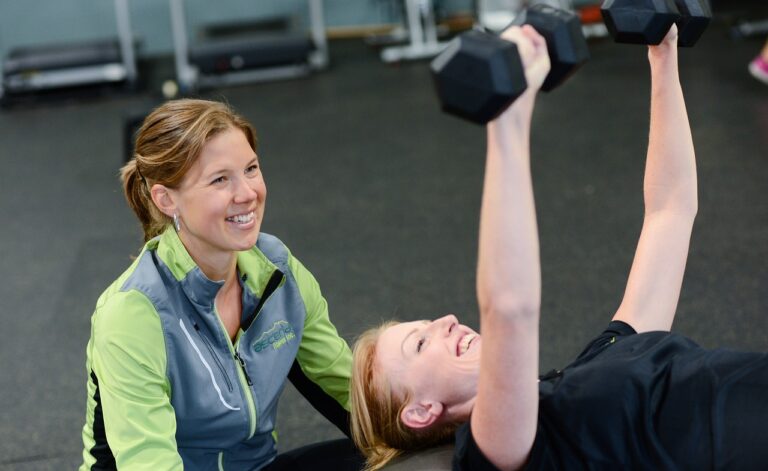Supplements can be helpful, but they’re not the first step. Focus on building a strong foundation with balanced meals, consistent workouts, and proper rest. If you decide to add supplements later, make sure they match your goals and fit your lifestyle. The most important thing is to keep things simple and sustainable—you’ve got this!
Should gym beginners take supplements?

Starting your fitness journey is exciting, but it can also feel a bit overwhelming. One of the big questions many beginners have is whether or not they should start taking supplements. Supplements can play a big role in supporting your workout goals, and if you’ve already checked out my article on the 10 Best Supplements for Women Who Workout, you know there are plenty of options out there. But are they really necessary for beginners? Let’s break it down.
What are supplements?
Supplements are products that add nutrients to your diet. These can be things like protein powders, vitamins, or even something like creatine to help with performance. They’re not magic, though. Supplements are meant to support your nutrition, not replace a balanced diet or a solid workout plan.
Do beginners really need supplements?
For most beginners, focusing on eating whole, healthy foods is the best way to start. Whole foods provide the energy and nutrients your body needs to recover from workouts and get stronger. However, there are situations where supplements can be helpful:
- If You’re Lacking Certain Nutrients: Sometimes, diets aren’t as varied as they should be. A supplement can help fill in the gaps.
- If You Need More Protein: Building muscle requires protein, and it’s not always easy to hit those protein goals through food alone.
- If You’re Super Busy: Let’s face it—meal prepping isn’t always doable. A supplement can make staying on track a little easier.
Do beginners need supplements?
The necessity of supplements for gym beginners depends on several factors, including individual dietary habits, fitness goals, and any specific nutritional deficiencies. Here are some considerations:
Nutritional Deficiencies: Individuals with dietary restrictions or those who may not consume a variety of foods might lack certain nutrients. In such cases, supplements can help bridge these nutritional gaps.
Fitness Goals: Beginners aiming for specific outcomes, such as muscle gain or enhanced endurance, might benefit from certain supplements that support these objectives.
Convenience: For those with busy lifestyles, supplements can offer a convenient way to ensure adequate nutrient intake, especially when whole food options are limited.
Common supplements for beginners
While the necessity of supplements varies, some are commonly considered by beginners to support their fitness journey:
Protein Supplements: Protein is essential for muscle repair and growth. For those who struggle to meet their protein needs through diet alone, protein powders can be a convenient option. Whey protein, in particular, is popular due to its high biological value and rapid absorption.
Creatine: Creatine is one of the most researched supplements, known for enhancing strength, performance, and muscle mass. It works by increasing the availability of ATP, the primary energy carrier in cells, thereby improving high-intensity exercise performance.
Branched-Chain Amino Acids (BCAAs): BCAAs, including leucine, isoleucine, and valine, play a role in muscle protein synthesis and can help reduce exercise-induced muscle soreness. They are particularly beneficial for individuals engaging in prolonged or intense workouts.
Multivitamins: A comprehensive multivitamin can help ensure adequate intake of essential vitamins and minerals, supporting overall health and compensating for any dietary deficiencies.
Omega-3 Fatty Acids: Omega-3s are known for their anti-inflammatory properties and support for heart health. They can be beneficial for individuals who do not consume sufficient amounts of fatty fish.
Should you start supplements right away?
Not necessarily. Supplements are there to help, but they’re not essential for everyone. Ask yourself these questions before diving in:
- Am I eating well?: If your diet isn’t balanced, that’s the first thing to fix.
- Do I really need this?: Make sure you understand why you’re considering a supplement.
- Have I talked to an expert?: A dietitian or doctor can help you figure out what’s best for your body.
Looking ahead
As you gain experience and develop your routine, you might want to explore supplements that align with your specific goals. For more detailed suggestions, revisit my article on the 10 Best Supplements for Women Who Workout, where I dive into options that support energy, recovery, and performance. It’s a great resource if you’re ready to take your fitness journey to the next level.
Integrating supplements into your routine
If, after consideration, you decide to incorporate supplements into your fitness regimen, follow these steps:
Identify Your Goals: Clearly define your fitness objectives to determine which supplements, if any, align with your goals.
Start with the Basics: Begin with foundational supplements, such as protein powder or a multivitamin, before exploring more specialized options.
Monitor Your Progress: Keep track of your performance, recovery, and overall well-being to assess the effectiveness of the supplements and make necessary adjustments.
Maintain a Balanced Approach: Remember that supplements are just one component of a comprehensive fitness plan that includes proper nutrition, regular exercise, adequate rest, and hydration.
